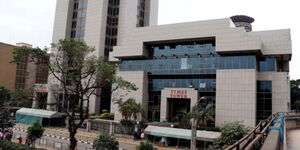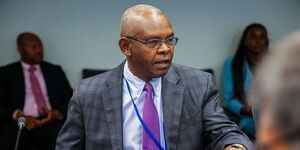The International Telecommunications Union (ITU), a UN agency for ICTs, has ranked Kenya as the top ICT regulator in Africa.
In a statement on Thursday, June 5, the Communications Authority of Kenya (CAK) revealed that the agency ranked Kenya as the leading horse in Africa and 20th globally out of 194 countries.
According to the authority, Kenya outshone other countries such as Nigeria and South Africa, which emerged second and third, respectively, and Malawi, Egypt, Rwanda, Morocco, Uganda, Burkina Faso, and Senegal, which were in the top 10 on the list.
The ranking was based on a country's national regulatory authority, breadth of the regulatory mandate, obtaining of a regulatory regime, and the robustness of the competition framework.
"According to the latest edition of the ITU's ICT Regulatory Tracker, Kenya scored 93 points, up from the 2023 rating of 92, taking the lead in Africa in best practice ICT regulation," CAK stated.
"Nigeria and South Africa came second and third with 92 and 88 points respectively, while Malawi, Egypt, Rwanda, Morocco, Uganda, Burkina Faso, and Senegal made it to the top 10 list," it added.
ITU ranked Italy as the leading ICT regulator globally with 100 points, followed by Lithuania (99.5), while Finland and Ireland tied in third place with 99 points.
Lauding the achievement, the Broadcasting and Telecommunications Principal Secretary Steve Isaboke said that the ranking reflected CAK's efforts in thrusting Kenya's digital transformation.
"This ranking is a clear testament to the excellent work that the CA has done in spearheading Kenya's digital transformation and driving digital access for all. At 25, CA's regulatory regime has attained maturity and gained global recognition," The PS said.
This comes weeks after Vihiga County Senator Godfrey Osotsi, during a senate proceeding on Tuesday, May 13, claimed that ICT regulatory bodies in the country are incompetent due to their inability to suppress the accelerating rate of digital fraud in the country.
The senator claimed that the Office of the Data Protection Commissioner (ODPC) and the CAK lacked 'technology experts' to effectively put an end to the fraudulent activities in the country's technology ecosystem.
"Speaking as an expert, I want to say that it may be an opportunity for us to have a relook at the entire Data Protection Act because this is where the inconsistencies are. I have noted inconsistencies even in the way the data protection office operates," the senator said.
"At CAK, the Director General is a journalist, and the chairperson is a businesswoman who does not understand technology, and I think the IT committee must look at this issue of competence and leadership in this sector," he added.












